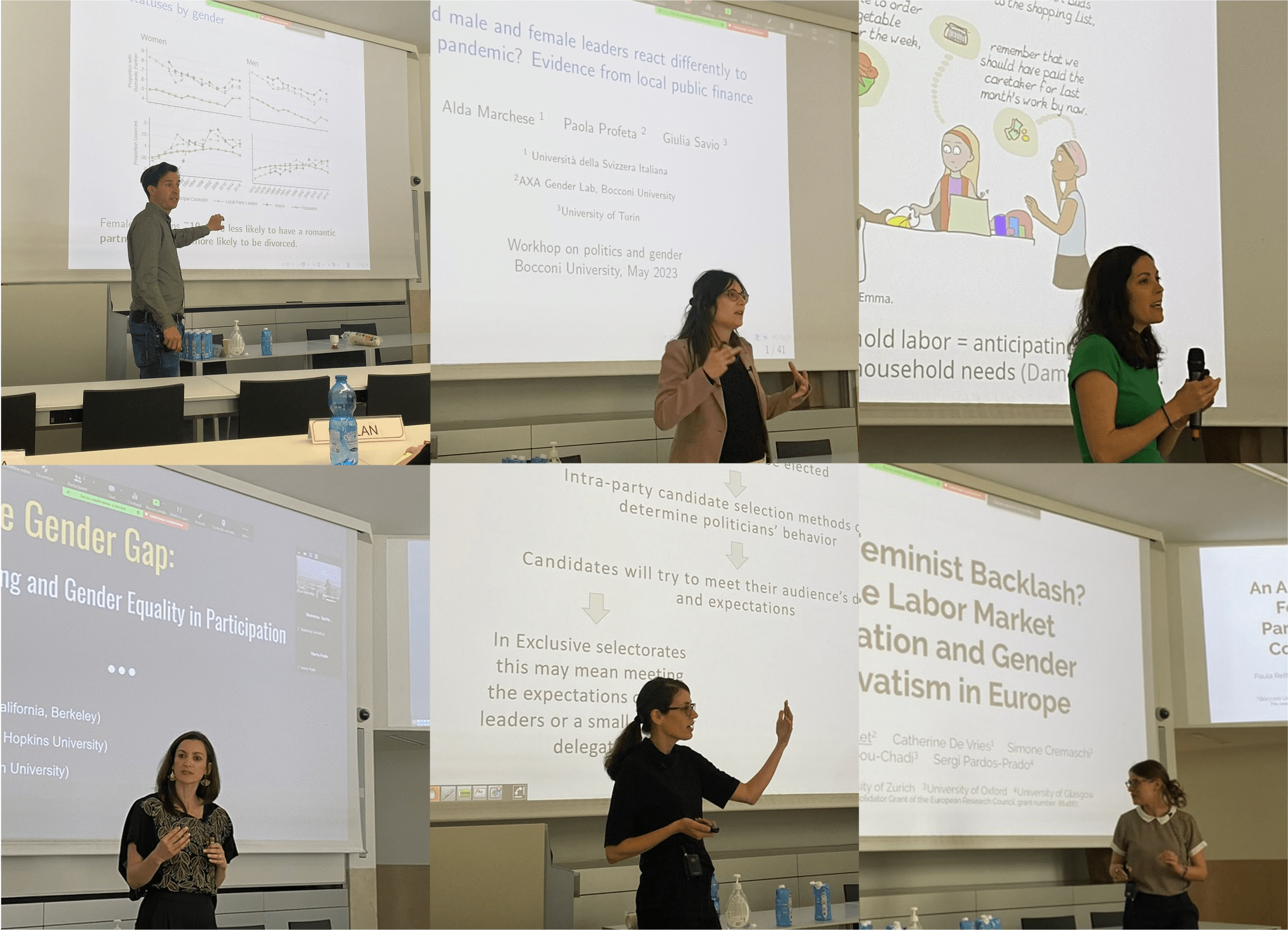Key Takeaways from the Workshop on Gender and Politics

Flipping the Gender Gap: Compulsory Voting and Gender Equality in Participation
Presented by Dawn Teele from Johns Hopkins University
Co-Authors are Anna Callis and Guadalupe Tuñón
Discussant was Catherine De Vries from Bocconi University
Dawn’s deep dive into Chile's compulsory voting illuminated its role in boosting women's electoral turnout. Alongside her co-authors, she showcases compelling evidence that women are responsive to electoral incentives. Remarkably, post mandatory registration implementation, women's participation in Chile's electoral process began to surpass men's. The study further reveals a correlation between the diminishing gender gap in turnout and urbanisation, female labour force involvement, and socio-economic class.
Family Matters: How Spouses and Children Shape Politicians’ Careers
Presented by Olle Folke from Uppsala University, and Johanna Rickne from Sofi, Stockholm
Co-authors are Moa Frödin
Discussant was Caroline Coly from Bocconi University
Studying local politicians in Sweden, Olle and his co-authors find that the female-male gender gap in advancement can be partially explained by differences in support provided by romantic partners. Parenthood also appears to impact politicians’ careers differently than the general population. Intriguingly, promotions amplified divorce rates for female politicians with no parallel effect on males, hinting at differential support & stress levels.
The Representation of Women-Related Issues in Politicians’ Discourse Over Social Media
Presented by Yael R. Kaplan from the University of Haifa
Discussant was Riccardo Puglisi from the University of Pavia
Yael’s research highlights how inclusive candidate selection methods can benefit women. Examining Israel's political landscape, her study reveals that candidates elected with inclusive methods (compared to exclusive methods) make more frequent direct references to issues women face on Facebook.
Anti-Feminist Backlash? Female Labor Market Participation and Gender Conservatism in Europe
Presented by Diane Bolet from the University of Zurich
Co-authors are Paola Rettl, Catherine De Vries, Simone Cremaschi, TarikAbou-Chadi, and Sergi Pardos-Prado
Discussant was Simone Scabrosetti from the University of Pavia
Diane’s research explores the dynamic between female labor participation & societal attitude. Delving into Switzerland and wider Europe, she uncovers how rising female labor market participation can impact the prevalence of conservative gender attitudes, particularly among men.
The Political Consequences of the Mental Load
Presented by Ana Catalano Weeks from the University of Bath
Discussant was Silvia Griselda from Bocconi University
Ana’s research presents a striking finding: women shoulder 40% more mental load (cognitive household tasks) than men – a gap twice as large as in physical household labor. Moreover, her research highlights a consequential side-effect: a high mental load correlates with diminished political interest among women. This insight prompts a reconsideration of the gender gap in political engagement.
The working paper can be found here.
When Women Take All: Direct Election and Female Leadership
Presented by Davide Cipullo from Università Cattolica Milan
Discussant was Carmela Accettura from University Carlos III, Madrid
Davide finds that direct elections notably boost the representation of female mayors in Italy. Further, these women leaders often step into roles previously held by undereducated incumbents, implying an upgrade in political competency.
The working paper can be found here.
Did Male and Female Leaders React Differently to the Pandemic Evidence from Public Finance
Presented by Giulia Savio from the University of Turin
Co-authors are Paola Profeta and Alda Marchese
Discussant was Simone Cremaschi from Bocconi University
Giulia’s research with her co-authors unravel how male and female local politicians in Italy reacted financially during the recent pandemic. They find that a spending convergence between male and female politicians, primarily at the cost of funds previously designated for childcare and schools by female leaders.

